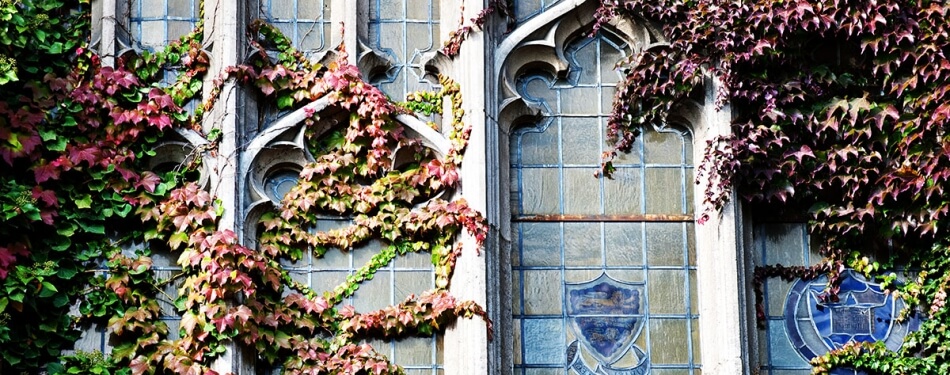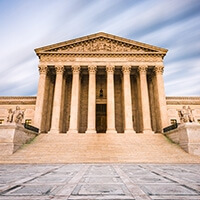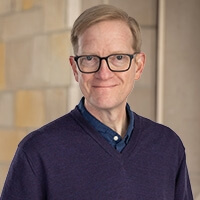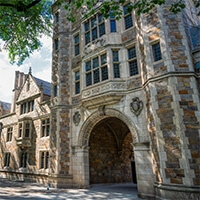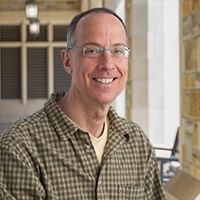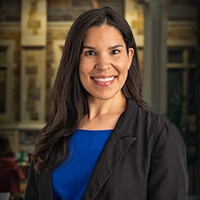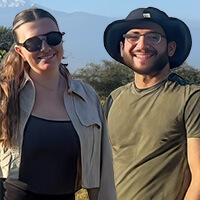Jacob Abudaram, ’23, was selected as a Skadden Fellow for the 2024–2026 term, joining a cohort of 28 graduating law students and judicial clerks from across the United States. Abudaram, the 39th Michigan Law graduate to receive this fellowship, will focus on the intersection of climate change and disability rights and justice at the American Civil Liberties Union’s (ACLU) Disability Rights Program.
The notion of “disability justice” expands on the disability rights movement. Though that movement helped to establish civil rights for people with disabilities and opened opportunities for them to participate more fully in society, the disability justice movement seeks to be more inclusive, examining how intersecting racial, gender, sexual, and class identities impact the lives of disabled people.
In his project, Abudaram will use strategic impact litigation to develop inclusive and tested emergency response plans for state and local government agencies. In collaboration with the ACLU Disability Rights Program, his goal is to push those agencies to be more disability-inclusive in disaster planning and create an advocacy toolkit that jurisdictions nationwide can readily implement.
“I’m grateful and excited that the Skadden Foundation and ACLU saw something in this project and that they’re willing to support innovative legal advocacy,” he said.
Abudaram’s motivation to become a legal advocate for the disability community stems from personal and familial experiences.
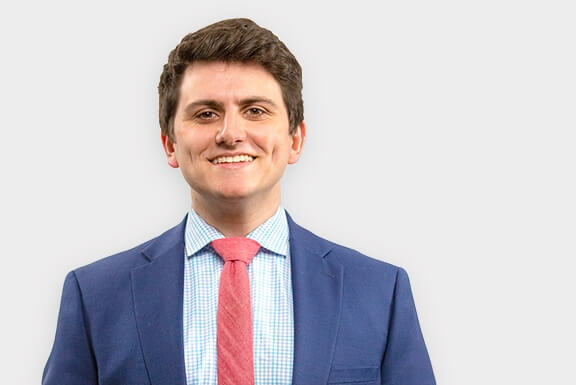
“Climate change is bringing about more frequent and devastating disasters. We need to ensure that the rights of disabled people are protected as government agencies respond.”
“My sister Rachel is a dynamic, creative, and kind person, yet our educational system sought to push her into standardized curricula that failed to meet her needs,” he said. “It was usually a lawyer working with my family who helped her get into the right classrooms with the right accommodations.”
Abudaram noted that the experience opened his eyes to systemic failures that especially affect marginalized populations.
“Many other disabled students—disproportionately low-income students and students of color—fall between the cracks of systems not built for them.”
He sought to deepen his understanding of disability rights and justice by earning a master’s degree in disability studies from The City University of New York before matriculating at Michigan Law.
Abudaram counts his two years as a student-attorney in the Civil Rights Litigation Initiative among his most memorable experiences at Michigan Law. “Getting exposed to how civil rights litigation works under Professor Mike Steinberg was formative to my interest in working with the ACLU and seeing civil rights impact litigation as a career path,” he said.
Thinking differently about disability rights and justice
The ACLU’s Disability Rights Program works to end discrimination against people with disabilities, ensuring they are valued, integrated members of society with full access to education, homes, healthcare, jobs, voting, and beyond. The attorneys there use integrated advocacy to help disabled people access their rights. Abudaram’s project is an opportunity for the Disability Rights Program to vindicate the rights of the disability community during emergencies.
During the COVID-19 pandemic, Abudaram paid close attention to how it revealed and exacerbated the disparities the disability community faces during crises. Title II of the Americans with Disabilities Act requires state and local governments to give people with disabilities an equal opportunity to benefit from all available programs, services, and activities—including emergency planning services. Abudaram intends to connect with communities who have faced recent emergencies or climate-related disasters to understand their needs better and use impact litigation to create a precedent that ensures disabled people’s rights are safeguarded.
“In thinking creatively about what state and local government agencies could do differently, a lot of what we’re going to be pushing them to do is not only include disabled people in their planning but let disabled people lead a lot of the planning,” said Abudaram. “Climate change is bringing about more frequent and devastating disasters. We need to ensure that the rights of disabled people are protected as government agencies respond.”
Abudaram currently serves as a law clerk for Chief Justice Mark Recktenwald of the Hawai’i Supreme Court. He has worked on cases related to civil rights, Native Hawaiian rights, and environmental law.
“I started in this role about a month after the wildfires in Lahaina, and it’s been special to be a part of helping the judiciary system think about how we maintain access to justice during emergencies,” he said.
A proud double Wolverine, Abudaram credits the Law School with shaping his legal acumen and propelling him into opportunities beyond the classroom. “What I loved about Michigan Law is it gave me the tools to connect academic work and theory to the lives and rights of real people in the real world, and it helped me find community,” he said. “I’m also grateful to the many professors who encouraged me to follow my heart in carving out a career path.”
Since its founding in 1988, the Skadden Foundation has funded nearly 1,000 fellowships, enabling recipients to dedicate two years to full-time public interest work.

